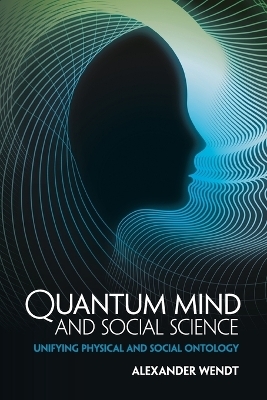
Quantum Mind and Social Science
Cambridge University Press (Verlag)
978-1-107-44292-4 (ISBN)
There is an underlying assumption in the social sciences that consciousness and social life are ultimately classical physical/material phenomena. In this ground-breaking book, Alexander Wendt challenges this assumption by proposing that consciousness is, in fact, a macroscopic quantum mechanical phenomenon. In the first half of the book, Wendt justifies the insertion of quantum theory into social scientific debates, introduces social scientists to quantum theory and the philosophical controversy about its interpretation, and then defends the quantum consciousness hypothesis against the orthodox, classical approach to the mind-body problem. In the second half, he develops the implications of this metaphysical perspective for the nature of language and the agent-structure problem in social ontology. Wendt's argument is a revolutionary development which raises fundamental questions about the nature of social life and the work of those who study it.
Alexander Wendt is Ralph D. Mershon Professor of International Security and Professor of Political Science at Ohio State University. He is the author of Social Theory of International Politics (Cambridge, 1999) which won the International Studies Association's Best Book of the Decade Award in 2006.
1. Preface to a quantum social science; Part I. Quantum Theory and its Interpretation: 2. Three experiments; 3. Six challenges; 4. Five interpretations; Part II. Quantum Consciousness and Life: 5. Quantum brain theory; 6. Panpsychism and neutral monism; 7. A quantum vitalism; Part III. A Quantum Model of Man: 8. Quantum cognition and rational choice; 9. Agency and quantum will; 10. Non-local experience in time; Part IV. Language, Light, and Other Minds: 11. Quantum semantics and meaning holism; 12. Direct perception and other minds; Part V. The Agent-Structure Problem Redux: 13. An emergent, holistic, but flat ontology; 14. Toward a quantum vitalist sociology; Conclusion.
| Erscheint lt. Verlag | 20.4.2015 |
|---|---|
| Verlagsort | Cambridge |
| Sprache | englisch |
| Maße | 152 x 229 mm |
| Gewicht | 520 g |
| Themenwelt | Geisteswissenschaften ► Philosophie |
| Geisteswissenschaften ► Psychologie ► Allgemeine Psychologie | |
| Geisteswissenschaften ► Psychologie ► Verhaltenstherapie | |
| Naturwissenschaften ► Chemie ► Physikalische Chemie | |
| Sozialwissenschaften ► Politik / Verwaltung ► Europäische / Internationale Politik | |
| Sozialwissenschaften ► Soziologie ► Allgemeines / Lexika | |
| ISBN-10 | 1-107-44292-3 / 1107442923 |
| ISBN-13 | 978-1-107-44292-4 / 9781107442924 |
| Zustand | Neuware |
| Haben Sie eine Frage zum Produkt? |
aus dem Bereich


